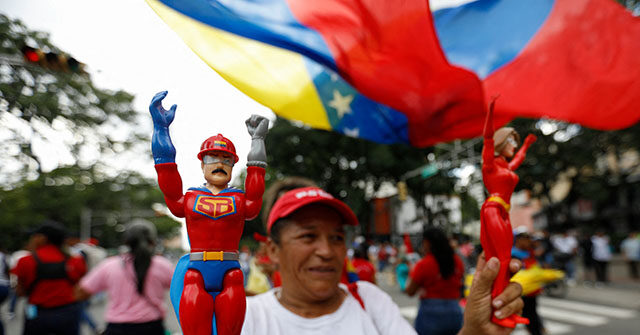Venezuela’s socialist regime, led by dictator Nicolás Maduro, has recently released another episode of the propaganda cartoon Súper Bigote (“Super Mustache”), which portrays Maduro as a socialist superhero in a stylized anti-American manner. This series has been used to promote the regime’s ideological agenda, depicting Maduro as an adversary of various perceived enemies, including the Venezuelan opposition and even influential figures such as Tesla’s CEO, Elon Musk. The cartoon, which emerged as a counter-narrative to so-called “capitalist” superheroes after years of vilifying them for their alleged negative impact on youth in Venezuela, has garnered significant investment from the Maduro administration in the form of merchandise, including toys and costumes, aimed at entrenching socialist ideals among the citizenry.
Súper Bigote serves as a vehicle for erasing controversy surrounding Maduro’s controversial political maneuvers, particularly the recent implementation of an early Christmas season that he decreed should start in October. In the latest episode, characters reflect on Venezuelan traditions while the cartoon version of Maduro highlights the impact of the so-called “enemies of the homeland,” asserting the necessity of maintaining a festive spirit despite the country’s dire socio-economic conditions. The cartoon continues a theme of festive cheer, purportedly symbolizing an idealized version of life in Venezuela, bolstered by Maduro’s declarations that the nation radiates peace, security, and public happiness.
This peculiar timing for Christmas, enforced by Maduro’s decree, violates traditional Christian celebrations, which typically begin with the Advent season leading up to December 25. By declaring that Christmas in 2024 should commence on October 1 and last until January 15, Maduro attempts to articulate this decision as an extension of gratitude for his purported re-election in July’s controversial vote, yet critics view it as a tactical distraction from the regime’s persistent economic mismanagement and humanitarian crises. The regime’s propaganda apparatus has sought to obscure the grave realities faced by ordinary Venezuelans, including rampant inflation, food shortages, and widespread poverty.
Maduro’s Christmas decree has drawn sharp criticism, with opponents suggesting it may be an overt effort to mitigate attention on the repressive measures employed by the regime against dissenters, including minors, following the disputed election. Observers have pointed out that these trends are part of decades-long socialist policies that have culminated in an extensive humanitarian crisis, forcing millions of Venezuelans to flee their homeland over the past ten years. As nearly 25% of the country’s population has sought refuge elsewhere due to dire living conditions, the regime’s relentless promotion of an idealized festive atmosphere stands in stark contrast to the stark realities felt by many citizens.
In response to the backlash against his controversial Christmas timeline, Maduro adopted a defiant tone during his weekly televised address. He disparaged international journalists for questioning the legitimacy of his holiday early start, labeling them “imbeciles” and “mercenaries” for speculating on the underlying reasons behind the decree. Maduro’s indignation underscores the regime’s fear of losing control over the narrative surrounding its governance and the dire state of the nation. He further asserted that the premature Christmas celebration was a source of joy, instead of acknowledging the underlying societal divisions and economic strife.
Ultimately, the release of the Súper Bigote cartoon and the early Christmas decree functions as part of a broader strategy on the part of Maduro’s regime to project an image of stability and happiness amid a backdrop of continued instability. By harnessing state resources for propaganda, the regime attempts to manipulate public perception while deflecting scrutiny from its failures. Critics continue to express alarm over the ways in which such measures are designed to politically and socially sanitize an increasingly volatile Venezuelan reality, highlighting the essential tension between artifice and actuality in the regime’s portrayal of national identity.

